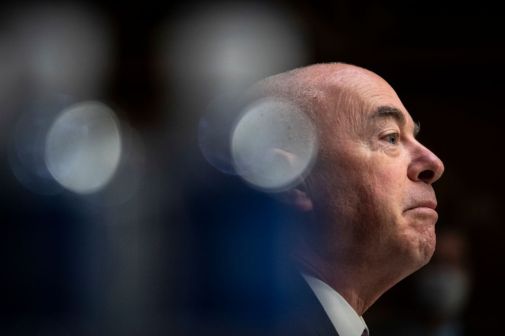A week after FedScoop first reported the U.S. State Department was sending as many as 350 diplomatic security agents and intelligence analysts to Sochi to help coordinate Olympic security with Russian officials, security experts in the U.S. said they are concerned about the amount of cooperation and information sharing taking place ahead of the games.
Located along the Black Sea coast 800 miles south of Moscow, Sochi is in the middle of a region awash in violent Islamic terrorist groups and a short distance from the front lines of Russia’s ongoing battle with Chechen terrorists. A recent spate of successful attacks targeting public gathering places in neighboring towns and public calls by terrorist leaders to attack the games has increased concerns about Russia’s ability to secure the games.
“Sochi is the Holy Grail for a … terrorist to go after,” said Andrew Kuchins, an analyst at the Center for Strategic and International Studies in Washington, D.C. “In the American vernacular, it’s high noon at the O.K. Corral.”
But that hasn’t necessarily translated into more cooperation and intelligence information sharing between Russian security services and the U.S., said Juan C. Zarate, a former U.S. deputy national security adviser on terrorism.
“The Russians have grown more and more concerned over the threat and are concerned over the perception of insecurity and therefore have not wanted to allow the United States and other security services in on the ground to assist,” Zarate said.
Despite the presence of the State Department’s diplomatic security agents and several dozen FBI agents, reports have surfaced indicating Russia has been unwilling to clear U.S. security officials for access to the various Olympic venues, he said.
During the 2012 Summer Olympics in London, the State Department deployed teams from its Office of Intelligence and Threat Analysis to work with a U.S.-led multiagency Joint Operations Center to protect Americans during the games. It also deployed three Olympic security coordinators and more than 75 agents to serve at 32 Olympic venues.
And although the State Department’s Office of Diplomatic Security has a formal memorandum of understanding with the U.S. Olympic Committee to facilitate the cooperation between U.S. security personnel and host-nation law enforcement agencies during the Sochi games, Zarate said security cooperation during the Sochi games does not appear to be as good as it was during the London games.
In London, “the U.S. worked very closely with British security officials to create cohesive command centers and response plans,” Zarate said. “That, in my estimation, is not happening in the context of Sochi. You have a realm terrorist threat here. These aren’t just imaginings or one-off threat threads that have to be chased down.”
The U.S. has been developing contingency plans for security assistance and, if necessary, evacuating thousands of U.S. athletes and citizens. Defense Secretary Chuck Hagel has also offered direct military assistance to the Russians, and has moved military aircraft and at least two warships to the region. But it is still unclear if the Russian government has or will grant U.S. forces permission to enter Russia in the event of a security incident.





